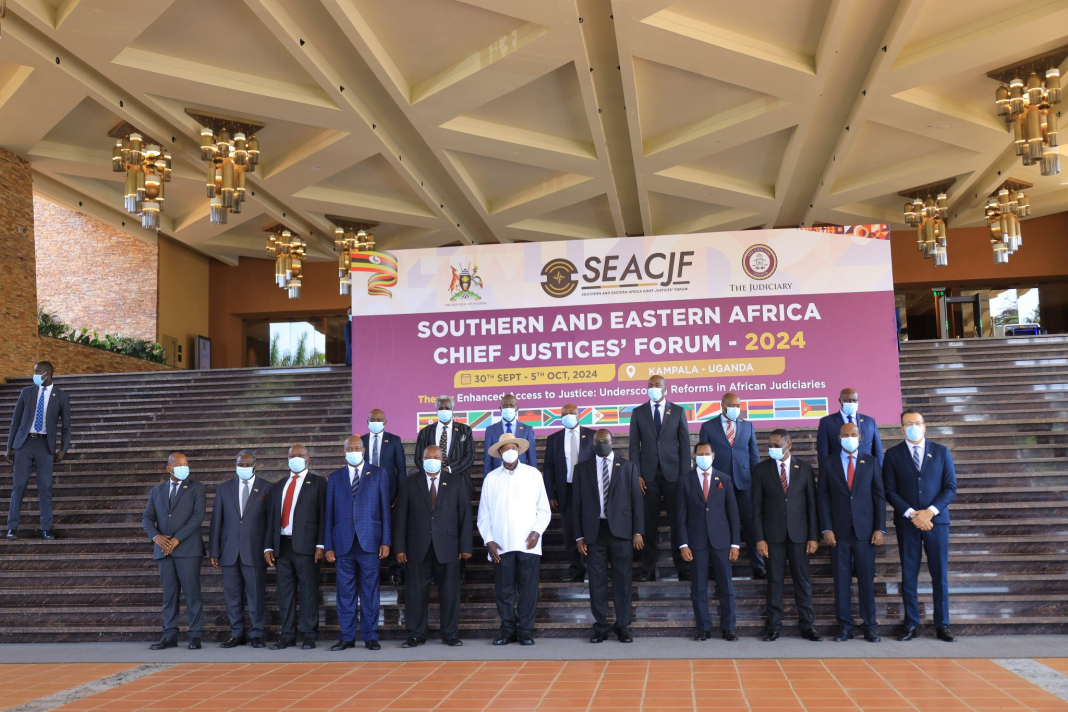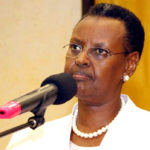President Yoweri Museveni has announced plans to introduce a law aimed at regulating extortion by money lenders.
Museveni made the revelation while officially opening the 19th Southern and Eastern Africa Chief Justices Forum (SEACJF) under the theme “Enhanced Access to Justice: Underscoring Reform in African Jurisdictions” at Speke Resort Munyonyo.
“I want to bring a law to fight money lenders. Money lenders are becoming a problem, they go to our villagers and cheat them, charge them extortionately yet our inflation rate is very low at 3% or even lower but you find these people charging them 240%” he said.
He added, “Of course we are going to make the law” noting that money lenders are claiming there is a document they are following which was signed by an ‘illiterate villager’ in which a lending contract is hidden as a purchase contract.
Last week while commissioning the Karuma hydropower project, Museveni Ugandans in the agriculture sector only borrow money from Uganda Development Bank, PDM and Emyooga SACCOs since they have low interest rates.
“The money lenders are your enemies and I am going to do something to them. I am going to crush the money lenders. They are criminals,” he said.
Highlighting other issues, Museveni urged the guests to embrace University education as a better mechanism to fight Gender Based Violence.
Speaking at the event, Chief Justice of Uganda, Justice Alfonse Chigamoy Owiny – Dollo said that SEACJF was established in 2003 as an association that brings together Chief Justices and Judges from over 16 countries to discuss contemporary issues affecting justice delivery in the region.
He added that the forum helps the leaders to deliberate on contemporary issues affecting justice delivery in different countries and also presents an opportunity for harnessing collective wisdom experience for the distinguished participants.
“We are constantly reminded of the profound responsibility that calls for willingness to learn from one another and change our mindset where necessary,” Owiny – Dollo said.
He highlighted the challenges affecting the judicial system such as inadequate court infrastructure, case backlog, geographical barriers, poverty, high cost of legal services, gender chauvinism, poor technological systems, interference with judicial systems, corruption, ignorance and under-staffing.








